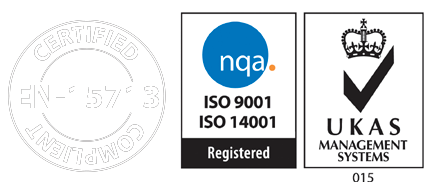It is common knowledge that you should shred all documents with sensitive information such as financial information from your bank or bills containing personal data, like your name and address.
What sometimes goes under the radar for most people are more mundane documents that can lead to identity theft and even more aggravated problems. These can be documents you deal with every day and don’t really consider confidential but can provide various information about you that in the wrong hands can be used for fraudulent purposes.
So that you don’t get caught in these dangerous schemes such as identity theft, we put forward 7 types of documents you should shred once they are not required anymore:
Receipts and Invoices
After purchasing something, a lot of people throw away the receipt if they don’t need it for tax purposes.
This is a common error that can, very clearly, provide criminals with data such as the last digits from your credit card. Other sorts of personal information can come in receipts or invoices even if you pay cash, such as your client account data, your phone number or address.
So, instead of trashing these unwanted receipts right outside the store, the best thing to do is to add them to your paper shredding pile when you get home.
Prescription Labels and Other Medical Documents
Your doctor’s prescriptions are addressed to you and, accordingly, feature some of your personal information as your name, your condition, what medicine you’re taking and the dosage, your pharmacist’s name, among others.
In the wrong hands, these documents might allow them to refill prescriptions, obtain drugs and all this using your identity.
Once you have picked up your items at the pharmacy or finished your pill bottles, make sure to destroy these documents and prescription labels, along with the personal information that sometimes gets attached to the prescription bag.
Boarding Passes
Physical boarding passes have, other than a person’s name and destination, a bar code that free and easily accessible websites can decode and provide added information about the traveller.
The deciphered bar code can disclose your frequent-flier identification with which thieves can log to your airline account and know all your scheduled trips, perform check-ins or cancel travels. If you are accessing your boarding passes on a mobile device, don’t share images of the pass on social media.
In case you are still using paper boarding passes, proceed to shred them and, while in the process, do the same to luggage tags since they can possibly refer to your account too.
Birth and Death Announcements
Information regarding a baby’s birth, for example a birth announcement, or regarding a loss of a family member, like a funeral program, are common to be spread to friends and family.
Children have appeared to be one of the preferred targets for identity theft criminals since their credit reports aren’t under any analysis so they can act unnoticed until significant actions. Deceased people have also been targets of identity thieves, applying for credits in their names by means of having their personal information.
It is understandable you want to keep copies of these announcements but make sure the remainders are shredded before taking them to the bin.
Resumés or CVs
Resumés are a collective of information you are providing to a potential employer about yourself and if found by identity thieves can hand them instantly your:
- Name
- E-mail address
- Phone number
- Mailing address
- Date of birth
- Working history
- Educational history
With all this data, they can recreate your identity and act on your behalf, and it surely won’t be for any good.
Once you have delivered your CV’s, make sure to shred any surplus copies, and the same applies if you’re updating your CV, you should destroy the outdated copies to avoid anyone picking your rubbish bin and getting your data.
Pet Medical Reports
It is common for online accounts to have a backup question in case you forget your password and one of the most popularly chosen is “What is your pet’s name?”. If that’s your case, I’m sure that you can instantly recognise the importance of properly disposing of the veterinary reports of your pet where its name comes featured.
Shred those pet medical reports that aren’t needed anymore before thrashing them and while at it, why not update your online accounts with stronger passwords and backup questions too!
Free Return Labels
Online purchases frequently have included labels in the packaging in case you want to return the item free of charge. Let’s say that you, like the majority of buyers, are not returning the item and just take the packaging with the label inside to the recycling bin.
These tags or labels have your address and name, which identity thieves can use to start profiling your information paired with social media details and other data.
From the moment you are happy with your purchase and don’t plan on making a return, shred the label, invoice or any other tags containing your information and make sure your address and data remain private.
Shredding Your Everyday Documents
Now that you realise the importance of shredding and of completely voiding your information, particularly from identity theft, you are probably considering how to do it.
Small domestic shredders are available at some electronics depot, but if you don’t want to invest in something you aren’t giving an intense use, you can always turn to a shredding service such as DGD Shredding. You can arrange a one-time or regular shredding hire at your door and guarantee the destruction of your data without much effort.
Just contact us by mail: info@dgdshredding.ie or telephone us at 1850 491 333 for a quote on your preference service, and if you still want to know more about our safe and reliable mobile shredding services, our team at DGD will be happy to assist you and answer all your queries.




